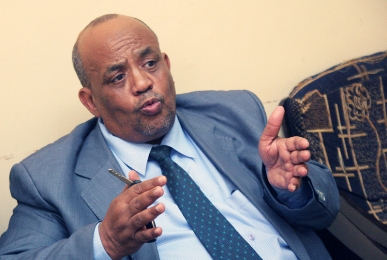Sudan’s PCP accuses the ruling party of aborting dialogue outcome
June 24, 2017 (KHARTOUM) – The Popular Congress Party (PCP) on Saturday has accused the ruling National Congress Party (NCP) of aborting the outcome of the national dialogue conference regarding the parliamentary posts.

The parliament member (MP) from the PCP, Kamal Omer told Sudan Tribune that the NCP has further tightened its grip on the parliament, saying the latter gained the posts of the speaker and two deputies besides controlling the permanent committees.
He added the NCP-controlled the basic committees including the legislative, finance and foreign relations committees, saying the ruling party even took the industry and investment committee which was supposed to go to the PCP.
Omer described the parliament actions as “disastrous”, saying the “partnership in the implementation of the national dialogue has come to an end” and the NCP is now controlling everything.
He again described the hegemony of the NCP over the parliamentary position as the “final nail in the coffin of the implementation of the national dialogue outcome”, saying the political parties who are taking part in the parliament are helpless.
Following a heated internal debate over participation in the National Consensus Government which was formed last month, the PCP took part in the executive and legislative branches of the post-dialogue government.
The Islamist party had earlier threatened to not participate in the government after the parliament passed constitutional amendments retaining powers of the National Intelligence and Security Services (NISS).
It is noteworthy that the PCP, founded by the late Islamic leader Hassan al-Turabi, splinted from the ruling National Congress Party (NCP) since 1999, and joined the opposition ranks since that time but it supported the national dialogue process declared by al-Bashir in 2014 and participated in all its forums.
The opposition groups boycotted the process because the government and the armed groups failed to sign a humanitarian truce and also due to Khartoum refusal to implement a number of confidence building measures aiming to create a conducive environment in the country before to hold the inclusive dialogue.
(ST)
